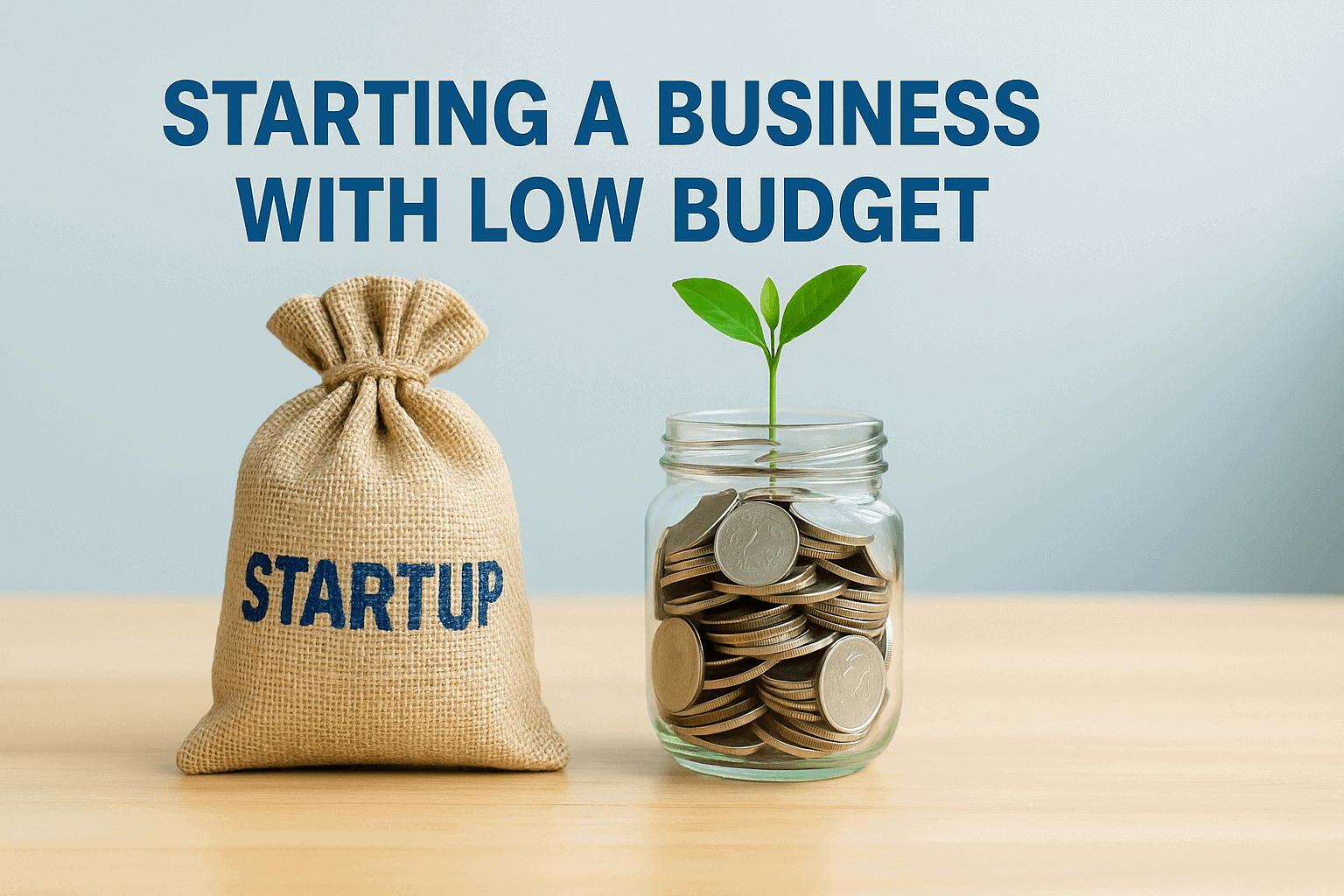Are you thinking about how to prepare for a recession, and if it’s a good idea? Think again. Discover the 7 myths holding your students back.
Table of Contents
If your students have ever mentioned starting a business during a recession, chances are they’ve been met with raised eyebrows, maybe even doubt. And honestly, it’s understandable. The headlines are filled with layoffs, uncertainty, and a shaky stock market.
People are anxious. Parents and even peers question whether now is the “right time” to jump into entrepreneurship.
But here’s what doesn’t get said enough: some of the most successful businesses of the last two decades got their start in the middle of an economic downturn.
Airbnb, Uber, and WhatsApp didn’t wait for the economy to bounce back; they were built in the middle of uncertainty 📉.
At Startup Wars, we believe tough times are actually the best time to learn how business works.
Because this is when real skills are developed. Not theory. Not guesswork. Experience.
And that’s exactly what we help educators bring into their classrooms through real-time, interactive startup simulations that don’t sugarcoat what it takes.
Let’s talk about seven big myths that stop students from seeing a recession as the opportunity it really is and how you, as an educator, can help them see the truth.
Game based learning blurs the line between theory and practice. It converts passive instruction into immersive, actionable knowledge. Learners are no longer attending hour-long boring lectures about leadership, negotiation, launching fictional product campaigns, managing crises or strategic thinking because they’re living in a simulated environment.
And it works: challenge-based gamification has been shown to improve student performance by up to 89.45% compared to traditional lecture-based learning activities, highlighting the many benefits of this approach.
In this post, we’ll look at five powerful examples of gamification in education and why it’s necessary for real-world skill-building.
💸 Myth 1: You must have deep pockets to launch in a recession

People say recessions demand loads of cash upfront. That’s simply not true.
Here’s the thing: downturns often weaken costs, office space drops, software gets cheaper, freelance talent becomes easier to hire. It’s the perfect time to bootstrap. You start small, grounded, and nimble. That’s a founder’s power move.
Also, great businesses often start lean. You don’t need a fancy launch. You need a working idea, grit, and the vision to expand later. Simulate your launch first, how to prepare for a recession means testing before doubling down. Startup Wars lets you do that. Build smart, step by step.
🧠 Myth 2: Creativity Halts When Money Vanishes
Lots of people think innovation dries up when budgets shrink. Wrong again.
When money gets tight, people get resourceful. Big firms freeze, trying to hold on. That’s when small, scrappy challengers step in. You see a gap, you fill it. You’re solving real problems, not playing hype games.
To understand how to start a business during a recession, lean into this. You’re forced to imagine leaner systems, cheaper tools, smarter growth. This is how recession resistant businesses are born: necessity breeds invention.
🛒 Myth 3: Starting a Business in a Recession Means Fewer Businesses Launch

Let’s be honest: when everyone’s talking about layoffs and decline, it feels like no one’s launching anything new. But data and stories prove otherwise.
Entrepreneurs don’t stop because the economy otherwise does. Many look at the chaos and see opportunity. Startups keep launching, in fact, the lean conditions can favor fast, small ventures. If you know how to prepare for a recession, you’ll see moves where others see collapse.
🔍 Myth 4: Investors Pull Back Completely During Downturns
It can feel like investors vanish when things get tough. But they don’t disappear, they get choosy.
Yes, fundraising may slow. But smart investors still back founders who show vision, lean strategy, and clear-market fit. As Airbnb’s Brian Chesky once said, building during a recession instills discipline. That becomes your secret sauce.
Founders who prove they can do more with less? That resilience builds trust. Knowing how to craft a recession proof business attracts the right attention, even with fewer shiny buzzwords.
🔒 Myth 5: Only a Few Luck-Out Startups Succeed During Recessions
Sure, we’ve heard the Airbnb or Uber stories. But many more succeed quietly.
Think essentials: plumbing, elder care, tutoring, affordable goods, that’s real demand. These are what are recession proof businesses often look like. These services don’t vanish when money tightens, they get essential. That’s how you think about a startup in tough times.
🗣️ Myth 6: Marketing Doesn’t Work in a Recession
When times get tight, many hold back marketing. That’s a big mistake.
Want to know a secret? When everyone else backs down, your voice gets louder. You can build trust, stay on people’s minds, offer real value. That’s how you connect, not just sell.
Being visible, and sensitive, during a slowdown can make your brand feel like a friendly ally, not a salesperson. It’s how you survive and grow and assess your opportunities before starting a business, know when to amplify your voice.
⏳ Myth 7: Growth Stops in Recessions

Tough times don’t kill growth, they shape it.
When resources are tight, founders get strategic. They target the basics. Build real traction. This lean approach often leads to stronger, smarter scaling later.
Some of the most enduring companies began in downturns. They emerged more efficient, more adaptable because they had to be.
What These Myths Mean for You Right Now
How to prepare for a recession
Start small. Think lean. Build on what matters. If you can simulate your idea, fine-tune before risking money. Games like Startup Wars give you that advantage, learn in a safe space.
What makes a recession-proof business
Think essentials: healthcare, groceries, repair, education, discount goods. These are recession-proof businesses because they handle stress better. People need them, no matter what.
Worst businesses to start during a recession
Avoid luxury goods, fancy restaurants, big construction projects, high-end services people can skip. Those fall quick when budgets tighten.
How to prepare for a recession
Ask yourself:
- Is your idea essential when wallets tighten?
- Can you start cheap and still serve value?
- Can you test the idea fast maybe in Startup Wars?
How to prepare for a recession
- Save a buffer before you leap.
- Start in small steps: part-time, side gigs, pilots.
- Pick recession-resistant ideas.
📈 Real Stories That Matter
During COVID, Asheville’s Wrong Way River Lodge & Cabins launched and thrived, because people craved safe, local escapes.
Brian Chesky at Airbnb says the 2008 crash forced tight discipline and shaped how Airbnb grew.
Studies show tech startups launched in recession survived more and created better, stronger innovations long-term.
Final Thoughts
Recessions scare us. They make us pause. But for builders, they are opportunities in disguise. If you learn how to prepare for a recession, you can stop reacting and start planning.
Lean in, pick ideas that people still spend on, real, not fancy. Use simulations like Startup Wars to try before you invest. Say no to myths. Say yes to founder-level thinking. Plan for flexibility, clarity, and value.
A downturn isn’t a stop sign. It’s an invitation to build smarter, stronger, lasting businesses. Be ready. That runway just opened.
Frequently Asked Questions
1. ❓1. Is it smart to start a business during a recession?
2. ❓Can students start a business without a lot of money?
3. ❓Does Startup Wars need any complicated setup?
4. ❓Can beginners use Startup Wars?
5. ❓What do I get in the free demo?
Ready to Train Your Mind Like A Founder?
People Also Searched For:
-
The Real Reasons Startups Fail - What 2 Startups & 70+ Startup Investments Teach You About Success
-
Most Founders Build Too Fast and That’s Why Startups Fail
-
ChatGPT 5 Release: What Educators and Students Should Know
-
Case Study in Education vs Simulation: Which Is Better for Teaching Entrepreneurship?
-
How to Use Business Simulations in the Classroom



